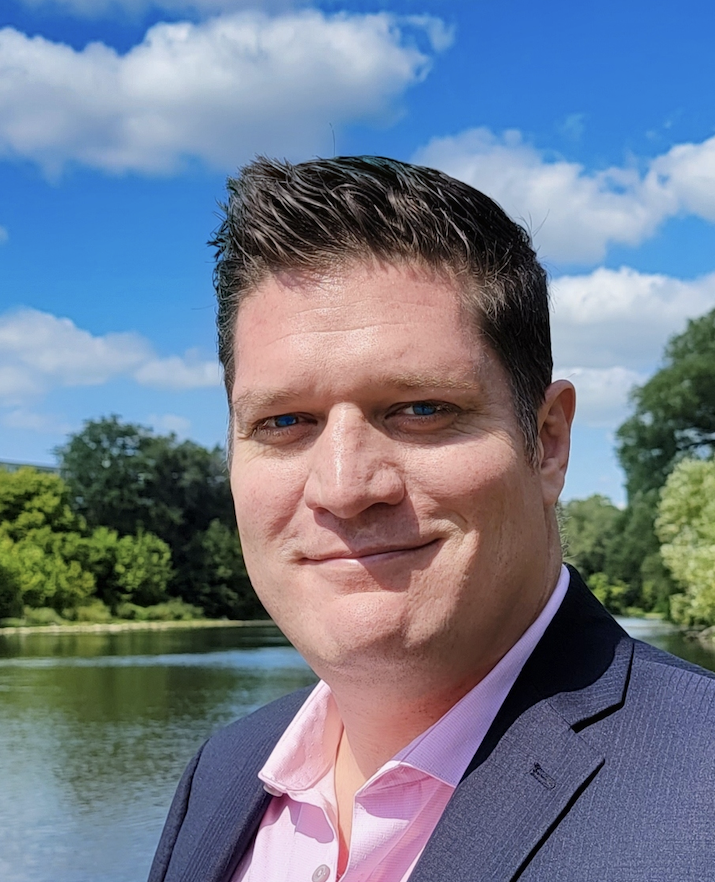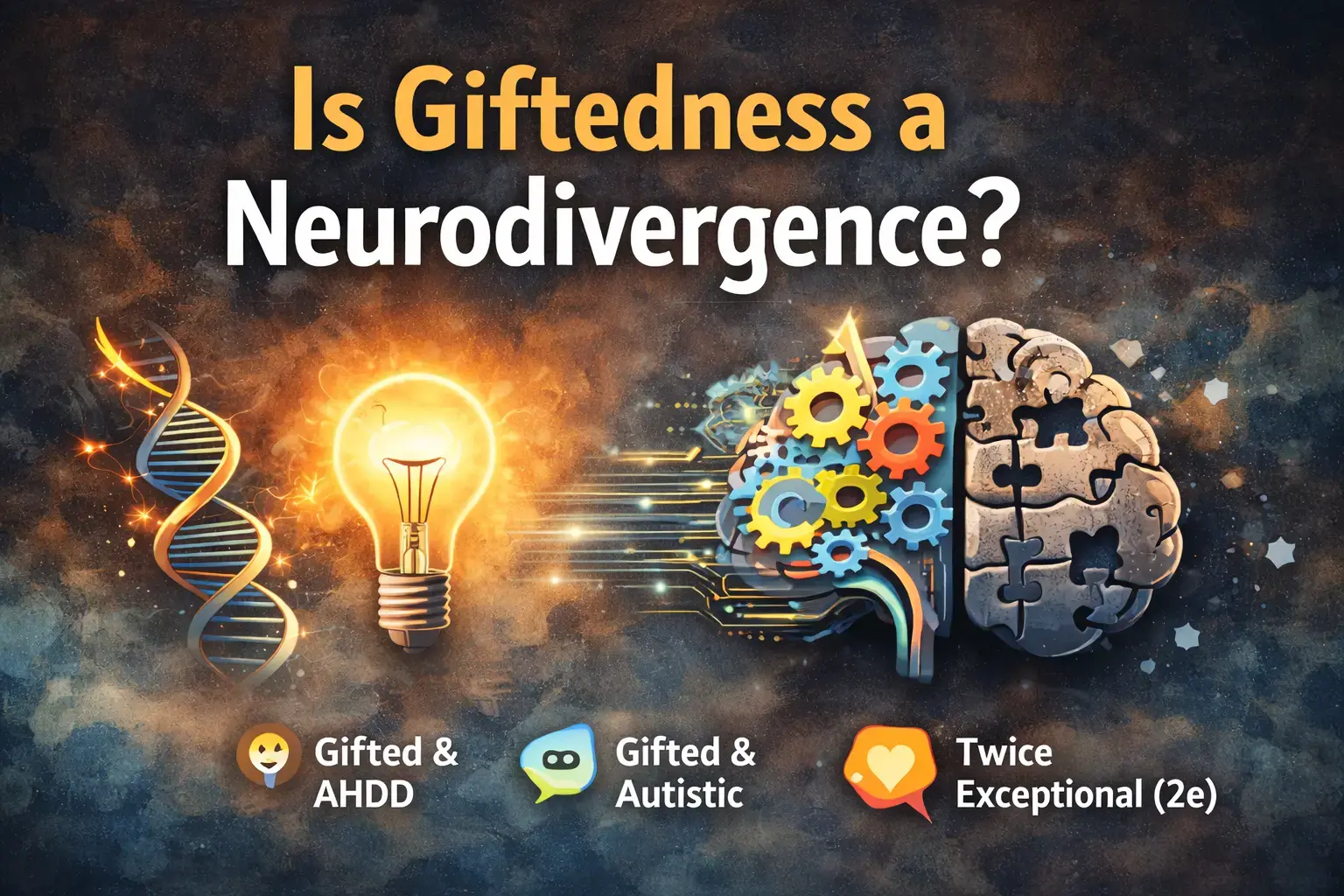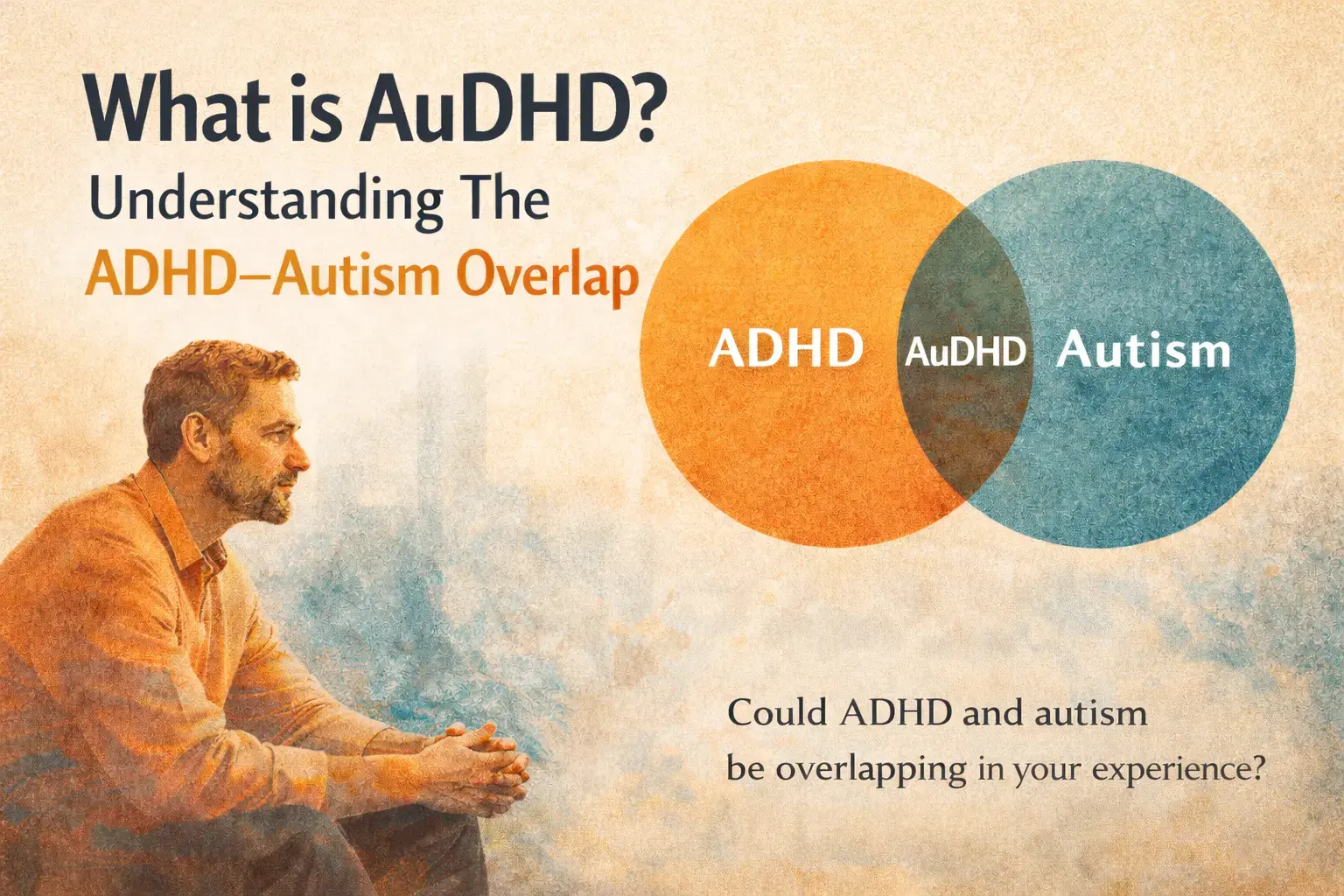Neurodivergent Men and Relationship Challenges: A Therapist’s Perspective

When I meet with clients, I often begin by asking a simple question: How does your body feel when you finally have that relationship talk you’ve been avoiding? Most men I work with don’t respond right away. Instead, they might notice their chest getting tight, their mind going blank, or feeling frozen. These reactions are common for neurodivergent men, who often face communication struggles, social tiredness, and different expectations that can make relationships feel harder.
In this blog, we’ll look at common relationship patterns for neurodivergent men, explore why these patterns can be different, and share practical, therapy-based ways to help you connect and be yourself.
Many readers who relate to this post also resonate with the themes in why neurodivergent men struggle to recognize their own needs, especially the pressure to appear capable while feeling disconnected internally.
Why Relationship Challenges Appear for Neurodivergent Men
For neurodivergent men, beginning a romantic or long-term relationship can feel strange, almost like stepping into a world where the rules are unclear. Research shows that adults with autism or ADHD traits often have less stable romantic relationships and face challenges that are different from those of neurotypical people.
Communication Differences
Neurodivergent men often have their own way of understanding communication. What feels clear to one partner might seem confusing or unfinished to the other. For example, you might hear a change in your partner’s tone and feel unsure why. You might also feel tense inside, sensing you missed something important. Studies on adults with both autism and ADHD show that picking up on social cues and meeting typical expectations can take a lot of effort.
What is one time you felt misunderstood in a relationship, even though you felt you were doing “everything right”?
Social Exhaustion and Regulation
Neurodivergent men often put in extra effort to fit in, hide their differences, or follow everyday relationship habits. This can use up a lot of emotional and mental energy, leaving less for things like connecting in the moment, dealing with conflict, or checking in with feelings. In relationships, this might mean wanting space when closeness is needed, or feeling tired after spending time together. Research shows that adults with ADHD and autism often feel emotions deeply but may find it hard to keep up with relationship routines.
When did you last feel drained by social connection, and what did your body ask for afterward?
Mismatched Expectations
Traditional ideas about marriage or romance may not fit how neurodivergent men experience closeness, talk with their partners, or handle daily life. Some research suggests that many autistic adults do better in relationships that offer flexibility, clear communication, and emotional safety, instead of expecting unspoken rules or sudden emotional responses.
You and your partner might want the same things, but show it in different ways. For example, you both may want to feel close, but each of you has your own way of showing love or meeting your needs.
Masking and Authenticity
Many neurodivergent men learn to hide their true selves, hold back their impulses, act like others, or stay quiet about their needs. Over time, this can make them feel like they are pretending instead of being real and connected. Feeling tired or unseen can affect close relationships, so being honestly noticed can feel both exciting and scary.
(Read more about masking, burnout and the high-achieving trap)
Emotional Intensity and Regulation Differences
For many men with ADHD or autism traits, emotions can feel very strong and hard to manage. A strong attraction might feel overwhelming, and even a minor disagreement can make them shut down. Research shows that people with ADHD or autism often feel love very deeply, but this can sometimes make relationships less steady. Changes in routine, too much sensory input, or sudden demands from a partner or at home can be especially stressful. What looks like resistance or avoidance is often just the nervous system’s way of saying it needs space or time to process.
Strengths That Become Pressure
Many neurodivergent men have strengths such as pattern recognition, intense focus, deep loyalty, and honesty that partners value. But if these strengths are the only things that matter, or if the focus is always on what’s missing, it can cause tension. Talking about and recognizing these strengths can really help your relationship.
Practical, Therapy-Aligned Strategies for Relational Growth
1. Create a Relationship Regulation Ritual
Set aside a regular check-in with your partner, sometimes called a relationship micro-pause, where neither of you tries to fix anything. Instead, ask: What’s going on for me? What’s going on for you?
Keep your check-in short, about 5 to 10 minutes. It’s okay if there are pauses or if things aren’t clear right away. This small habit can help you both feel safer before you talk about bigger topics.
What would feel like “safe” timing and setting for you and your partner to use this ritual?
2. Translate Neurodivergent Needs into Relational Language
Pick one of your common regulatory signals (“I need quiet after work,” “I need to write before I talk”) and practice naming it:
“I notice I feel like I need to step away for 20 minutes before we talk, because my brain’s still spinning.”
Describe it as a need, not as a failure.
This practice helps you and your partner understand each other better and can ease some of the stress or confusion.
3. Co-Create a Communication Map
With your partner, map out three “easy zones” and one “preferred big talk zone.” Often, I find we need to develop our own language with our partner so that our understanding of each other's needs goes both ways.
- Easy zone: “I’m restless, I’ll pace while you talk.”
- Meta-communication zone: “If I zone out mid-sentence, that’s a red flag for me.”
- Big talk zone: “When we need to talk deeply, let’s schedule it and put phones away.”
This approach helps you manage different expectations and makes it easier to connect, even if you and your partner communicate in different ways.
4. Honour Your Strengths & Re-Frame Differences
Write one paragraph about your relational strengths as a neurodivergent man (e.g., intense focus, creative problem-solving, loyalty). Then add one sentence about how these might be misunderstood in relationships (e.g., “My deep focus looks like I’m ignoring you”).
Please share this with your partner when you feel comfortable, and invite them to share their thoughts as well.
This helps you both understand each other better and see your differences as strengths in your relationship.
5. Build Self-Compassion for Relational Patterns
Remember that making mistakes in relationships does not mean you are a bad partner. Often, it just means there is a mismatch or an unmet need. Try this short self-compassion affirmation:
“I am doing the best I can with the wiring and experience I have. I give myself permission to learn, pause, and reconnect.”
This can help quiet the inner critic that many men feel when they think they should already know how to handle relationships.
What one strength of yours could you bring into your relationship more deliberately—and what support do you need to do that?
If relationship patterns feel complicated, you may also appreciate my reflection on navigating neurodivergent relationships with authenticity and connection.
When Good Intentions Meet Persistent Patterns
Even if you use good strategies, you might still notice the same patterns in your relationship. Maybe your partner says you don’t listen, and you feel blamed, or you take a break to recharge and then feel guilty. Sometimes, you achieve something and your partner reacts with jealousy or pulls away. These aren’t personal failures. There are signs in your relationship that are worth paying attention to.
Working with a therapist who understands the inner world of neurodivergent men can help turn these signals into chances for connection. In therapy, you can explore:
- How your wiring, history, and masking influence the relational dance
- How your partner’s relational system interacts with yours
- How to integrate your neurodivergent strengths rather than hide them
If this sounds familiar, you’re not alone, and there’s nothing wrong with you. For neurodivergent men, relationship struggles often happen because the system doesn’t fit, not because of a personal flaw. Learning relationship skills that respect your unique way of being can help you feel more connected, satisfied, and true to yourself.
If you’d like to understand more about who I am and how I support neurodivergent men across Ontario, you can visit my About Michael page, where I share my lived experience and therapeutic approach to relational patterns.
If the relationship themes in this post resonate, you’re welcome to reach out through my contact page to explore support for navigating these dynamics more clearly.
Or stay on the blog and learn more about ADHD, Autism, and Giftedness.
Blog Disclaimer
This blog includes occasional personal anecdotes used to illustrate therapeutic ideas and foster connection. All identifying details have been altered or omitted to protect confidentiality. These reflections are intended as examples only; every individual’s experience is unique, and what resonates for one person may not apply to another.
The information provided here is for educational and informational purposes and should not be considered a substitute for professional medical or mental health advice, diagnosis, or treatment. If you have concerns about your health or well-being, please consult a qualified healthcare provider or licensed mental health professional.
Psychotherapy services described on this site are available to residents of Ontario. If you are interested in support or would like to schedule a complimentary 20-minute consultation, you are welcome to contact me through my practice.
These resources are offered to support your learning and self-understanding as you move toward a more grounded, authentic, and meaningful life.

Michael Holker HBA, BSW, MSW
Michael Holker, MSW, RSW, is the compassionate heart behind Becoming Yourself Counselling. Discovering his own neurodivergence later in life shaped his existential, humanistic, and strengths-based approach to therapy. Guided by his lived experience, Michael helps neurodivergent individuals move beyond self-criticism toward self-understanding, self-compassion, and self-acceptance. His work invites clients to honour their journeys, embrace their resilience, and reconnect with their authentic selves, cultivating a life of greater alignment and meaning.


